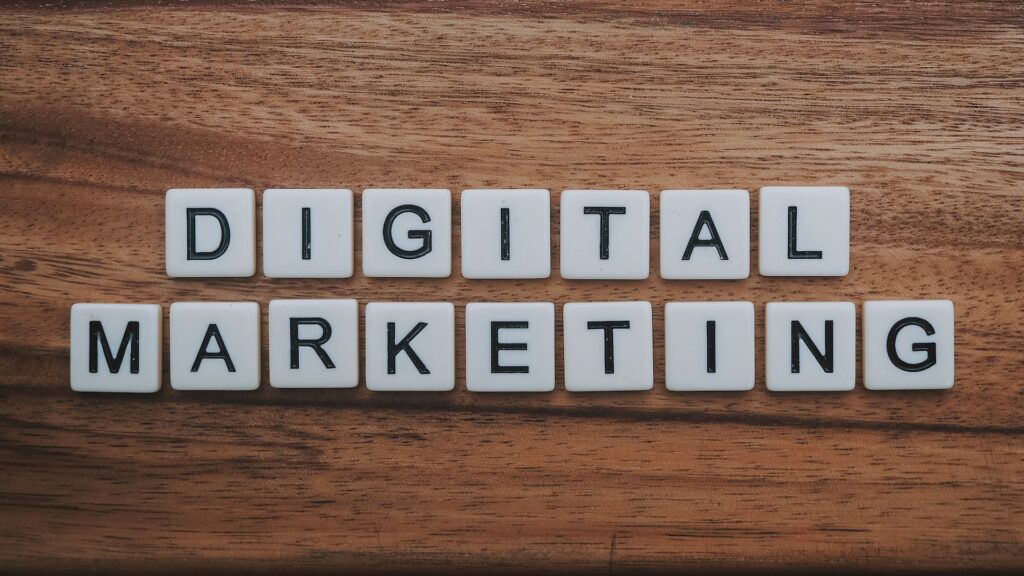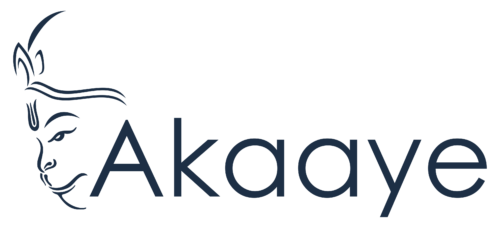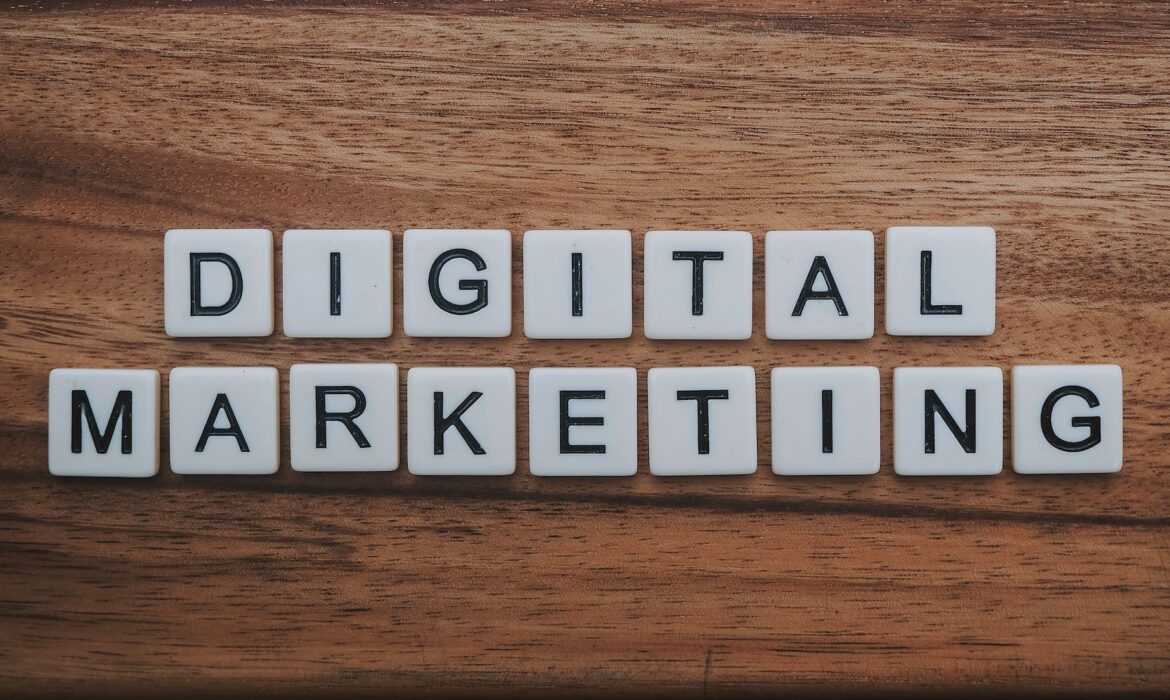
As time wears on and new advancements in the digital space commence, there has been a considerable shift in digital marketing, whether you look at India or abroad. Dynamization has already begun in the digital age.
There has never been a time when marketing has been more challenging. Due to social media, varying attention spans, rising competition, changing preferences, economic challenges, and rising costs, acquiring new consumers is becoming increasingly difficult. Furthermore, you risk losing your old customers to more digitally advanced, recent businesses.
This new digital challenge requires us to step up and adapt. To create successful online marketing strategies, you must understand what digital marketing is, its advantages, and how it works.
What is a Digital Marketing Strategy?
A Digital Marketing Strategy refers to a plan of action followed by all members of an organization’s marketing team to achieve a specific goal. It is possible to have short-term and long-term goals in a company, depending on its needs. A variety of channels can be used to accomplish this goal, including owned media, earned media, and paid media.
What is a Digital Marketing Campaign?
The Digital Marketing Campaign is an action or series of actions within a marketing strategy that enable an organization to reach its goals.
You might want to invest in PPC advertising if your short-term digital marketing goal is to scale website traffic. You will execute a PPC campaign to achieve this goal.
As an example, imagine that your digital marketing strategy is designed to raise brand awareness. Invest in social media marketing to get your brand in front of your target audience.
Digital Marketing Strategy v/s Digital Marketing Campaign: What’s the difference?
The terms ‘digital marketing campaigns’ and ‘digital marketing strategies’ are often confused and mixed up by businesses, including marketers.
To achieve your business goals, your company must develop a digital marketing strategy. By contrast, digital marketing campaigns are used to achieve your digital strategy’s goals.
You can’t run a successful digital marketing campaign without a well-defined strategy, so your business objectives won’t be met.
Actionable Tips for an Effective Digital Marketing Strategy
Marketers all over the world are feeling the heat as the digital market becomes increasingly competitive. A new generation of practices is replacing the old ones.
The market space is getting crowded and visibility is getting harder. For a business to survive in today’s digital space, it’s imperative to stay up to date with the latest digital marketing trends and adopt the best internet marketing strategies.
In order to create an effective online marketing strategy that will help you stand out from the crowd, follow these tips:
1. Use Data-driven Insights
Because data-driven digital campaigns are based on analytics, they are sure to succeed. There is no reliance on hearsay or assumptions – only on facts and figures.
Hence, if you have not already done so, you should incorporate data into your business model. It has already been adopted by a large number of startups and established companies. In case you’re still not convinced, here are some advantages of using data:
- Data can show you which marketing channel or platform is performing the best, thus giving you a clear idea about which marketing channel might be the most suitable for your industry.
- You can use data to create buyer personas: Data can help you identify your target customers, and what stage of their buying journey they are at. As a result, By developing accurate buyer personas, you’ll be able to create better content strategies, ad campaigns, and social media campaigns.
2. Create Engaging Content
A successful online promotion strategy revolves around content. In the end, you can’t advertise without content. For a digital marketing campaign or structure to be successful, content is crucial.
The focus has shifted from quality content to engaging content.
Intuitive and engaging content gets rewarded by Google, which will rank your content piece higher in its search engines. It is also important for your content to add value to people to compel them to share it.
Here are some useful tips to help you create engaging content:
- Create video and podcast versions of existing content to make it more engaging.
- Your content piece should incorporate user feedback.
- Your content pieces should be tailored to your audience’s preferences based on what content has received the best response.
- Find out what works and what doesn’t work by studying the average time users spend on your content. Making better engaging content that gets more traction will be easier by avoiding redundant content pieces.
3. Communicate your message using visual aids
Visual communication is the most effective method of conveying your thoughts and messages. This technique helps you achieve your business goals. Marketing collaterals can be enhanced with featured images, infographics, and videos.
We all know that visual content reaches more people and gets more engagement. The following facts demonstrate the growing importance of it for marketers:
- 80% of marketers use visual assets in their social media marketing campaigns, such as photos, graphics, infographics, and videos.
- 32% of marketers say visual images are their most important content type.
- A majority of B2C marketers report that visual content is the most important type of content today, compared with a minority of B2B marketers.
4. Use personalized marketing
Personalized marketing is targeted marketing. With this type of marketing, marketing campaigns are tailored based on identifying a niche audience’s buyer persona and their buyer’s journey. To effectively reach your target audience and convert them, you should incorporate this into your marketing strategy.
Here are some best practices for personalized marketing that you should incorporate in your digital marketing strategies:
- Content and marketing ad copy should be tailored to match the buyer’s journey of your target audience.
- Get in touch with your audience on social media and send them timely, personalized emails.
- Provide a personalized experience for your audience. Offer them practical solutions to their problems while being empathetic and addressing their pain points.
5. Listen to your customers
Your target audience is another marketing tactic that has proven effective time and again. You should make this an important part of your digital marketing strategy framework.
It is crucial to stay tuned to your target audience at all times in order to execute a successful marketing campaign. Customer feedback can be gathered in several ways:
- Keep an eye on social conversations about your brand. By capturing as much information as possible, you will be able to rebrand your marketing efforts if needed. You will be able to improve your marketing campaigns based on insights gained from these conversations.
- Make your audience feel heard by engaging in social media conversations about your brand and products, and responding to both positive and negative comments they have posted. Create a weekly schedule and a process to ensure that everything runs smoothly.
6. Identify & use the most profitable online marketing channels
Online marketing channels are essential to marketing success. Don’t let yourself get lazy. Today’s digital space is ever-expanding, so you need to use different tools and platforms to establish your presence. Use analytics to identify which areas are generating the best results, as well.
Online marketing with image-heavy apps and social media platforms is a highly profitable strategy for eCommerce websites and retail businesses. Similarly, for startups trying to become an authority in a niche, a focussed approach to Quora and Reddit marketing may be more profitable. The goal here is to pursue a marketing platform that works for you.
7. Audit existing assets to improve your web marketing strategies
If you want to create an internet marketing strategy that works, you must continually improve it. Without auditing, this won’t be possible.
While auditing, consider the following media types:
- ‘Earned media’ means that someone writes about your business without being paid for it. In other words, it is any content that was not created by you. Monitoring earned media will help you find out what people are saying about you. If necessary, you can make changes in your strategy based on your plan of action, in order to replicate past success.
- Media owned by a company is known as owned media. It includes content for websites, social media posts, blogs, articles, PR collateral, and marketing copy. With owned media, you can easily track and audit it without investing extra time and effort. Based on that, you can make the necessary changes to your marketing strategy.
- A paid media campaign refers to all promotional materials you purchase to advertise your business. Social media advertising and PPC ads are among its components. Investing money in these ads requires tracking their feasibility and whether they are delivering the results you’re after.
8. Track Results and Optimize your Digital Marketing Campaigns
The performance of your digital marketing campaigns determines whether your online marketing strategies are successful. To maximize the effectiveness of your campaigns, you need to constantly monitor them, analyze their progress, track their impact, and identify how they can be improved.
Here are some things you should consider while tracking the results of your campaigns:
- Make sure you are seeing a return on ad spending (RoAS).
- Make sure your campaigns are reaching and impacting the right people. Analyze how your ads are reaching your target audience and how they are engaging with them.
- Analyze your campaigns’ feasibility. It means that you need to rework your conversion strategy if you aren’t achieving your conversion goals.
What are the Advantages of Digital Marketing?
Here are some of the advantages of digital marketing:
1. Digital Marketing is more cost-effective than traditional marketing
The measurable nature of digital marketing allows brands to optimize ad spend and maximize ROI (return on investment). Using digital marketing methods saved 40% of respondents considerable amounts of money, according to a Gartner study. It is a level playing field for both big and small businesses, where even limited resources can make a big difference.
2. Digital Marketing helps you engage with your target audience
Through digital marketing, you can interact with mobile consumers (the fastest-growing segment of the audience) and target them based on their demographics, attributes, and preferences. By doing so, marketing efficiency is increased, retention rates are improved, and customer satisfaction is increased.
3. Digital Marketing builds trust and reputation
Digital marketing helps you build trust in your brand by making it easily searchable and have a significant online presence. Furthermore, digital marketing builds your brand’s reputation through social media, reviews, and testimonials. Therefore, you can generate new customers through word-of-mouth referrals and establish your online credibility.
4. Digital Marketing prepares you for the future
Digital marketing and digital presence are essential to competing and getting ahead in this day and age. Companies that adapt to changing business environments have a greater chance of success. Digital marketing strategies generate 2.8x higher revenue growth expectancy for companies, according to Google.
5. Digital Marketing allows you to measure and grow your business
Measurement is one of the most important advantages of digital marketing. Digital marketing allows you to track your campaigns, analyze them, evaluate their reach, measure their results, and tweak them as they go.
Why is Digital Marketing important for your Brand?
A well-structured digital marketing plan can help you achieve the following results for your brand:
1. Social Media Engagement
An Improved customer service, improved retention, and new avenues for discovery are all benefits of a strong social media presence. Using social media to build an audience is one of the most proactive and real-time ways brands can communicate with their consumers.
2. Customer Acquisition & Retention
Modern and traditional marketing efforts are all aimed at acquiring new customers and retaining existing ones. A digital marketing campaign can help you reach the right audience, with precision, offer personalized attention, and drive more sales.
3. Brand Building & Awareness
Multi-channel content strategies serve to engage both current and potential customers. It creates a distinctive imprint on customers to recognize a Coke or Adidas logo wherever it appears.
Building your brand identity and telling your story to potential customers requires the creation and dissemination of content.
4. Shareability
Shareable content such as blogs, memes, infographics, podcasts and videos can go viral and spread rapidly on the internet. As a result, you’ll be able to attract new leads and attract new customers by introducing them to your brand and stories.
5. Reputation Building
A website, a local directory listing, or social media can help your brand build a profile on the internet. Reputation management (ORM) impacts SEO, brand searchability, and page rankings – customers actively seek out a brand’s profile and trust those with established credibility, reviews, and a strong digital presence.
Why do you need a Digital Marketing Plan?
If you don’t plan, you’re planning to fail. Creating awareness, getting leads, and converting them into customers requires an effective digital marketing strategy for every brand.
1. Defines your Goals and Objectives
A Digital marketing strategies help you define company goals and objectives – what is the most important thing to your brand? What about profits? Do you engage? Does it sell? leads? It is important to outline answers to crucial questions such as target audience, budgets, frequency, and direction when building a plan of action.
2. Helps You Get to the Digital Consumer
Online shopping isn’t just about shopping – we spend a lot of our time, energy, and resources online. Search engines and social media increasingly influence purchasing decisions. In order to scale brand awareness and customer engagement, a well-defined digital marketing strategy should focus on the digital consumer and his/her habits.
3. Measurable Results
Digital marketing is measurable; you can track visitors, sales, conversions, growth rates, and much more with your campaigns. With a solid digital marketing strategy in place, you can track your current results, optimize your efforts or change strategy and direction to achieve success.
4. Interactive Experience
Taking your content experience to a whole new level is now possible with so many digital channels available such as email, social media marketing, podcasts, videos, affiliate marketing, and blogs. The content you offer your customers can be personalized and interactive. In addition to encouraging user-generated content, feedback, reviews, and community building, a great digital marketing strategy involves dialogue with your customers.
5. Increased Reach and Visibility
Strategically increasing your reach and visibility through digital marketing can help you stay ahead of your competitors. You can reach your target audience, explore new business segments, and run A/B tests in different markets through digital mediums. Digital marketing makes it easier than ever to reach a national or global audience – all of which would not be possible without it.
Key Trends in Digital Marketing you should be aware of:
It is no longer possible to ignore the importance of digital marketing. By 2021, eMarketer predicts global digital ad spending will reach $375 billion. Here are a few trends to keep an eye out for when drawing up your digital marketing plan:
Modern Technologies That Are Enhancing Digital Marketing
- Adapting automation to marketing is the next step in the evolution of digital marketing. Personalization and automation have become increasingly important with the availability of vast amounts of data.
- AI, especially, is the future of marketing and technology. To provide a holistic customer experience, marketing insights, customer experience, and technology are essential.
- As a result of technological advancements such as AR, VR, and voice, marketers will be able to provide consumers with better service. To drive conversions, tech giants like Facebook are rolling out interactive experiences such as AR ads.
- Retail businesses that are omnichannel rather than only online or offline are preferred by customers. Footfall and online campaign tracking technologies are being invested in by businesses with offline presences.
Digital Marketing Channels to Focus On
- Now that Amazon has entered the ad game, Google and Facebook aren’t the only digital ad players.
- It’s going to be a shopping-heavy year in Google Shopping – get ready. Shopping tabs are already available through organic search on Google.
- As voice assistants like Alexa, Siri, and Google Home become more common, voice search and voice advertising are increasing. SEO and search patterns have also changed significantly as a result.
- The search algorithms are constantly evolving, which means search engine optimization is constantly being refined as well. In addition, existing rankings will change as a result of this.
- Consumption of video continues to increase – video production, content creation, and native advertising in video are all opportunities.
Improving Customer Experience With Digital Marketing
- It is expected that chatbots will remain popular in the future. You save money by having them answer your questions. Customer service software programs that interact with website visitors and customers provide unbiased, personalized attention.
- Whatsapp, Wechat, and Viber are becoming popular with brands – for chatting, for shopping, and for communication. As a marketing channel with mass reach, these have an untapped potential.
- With social media channels constantly evolving and adding new features, social media remains an important channel for spending time. Creating a brand connection and demonstrating your creativity is great.
Conclusion
Throughout this blog, we have discussed key aspects of digital marketing, the difference between a digital marketing strategy and a digital marketing campaign, and more. To achieve digital success, it takes a refined hand of digital perfection and expertise and may seem easy on the surface.
A business has two options: either do this in-house, which would require an army of trained professionals, or use a digital marketing agency such as ours. Our agency has consistently achieved success in digital marketing. Our success can be replicated for you.


